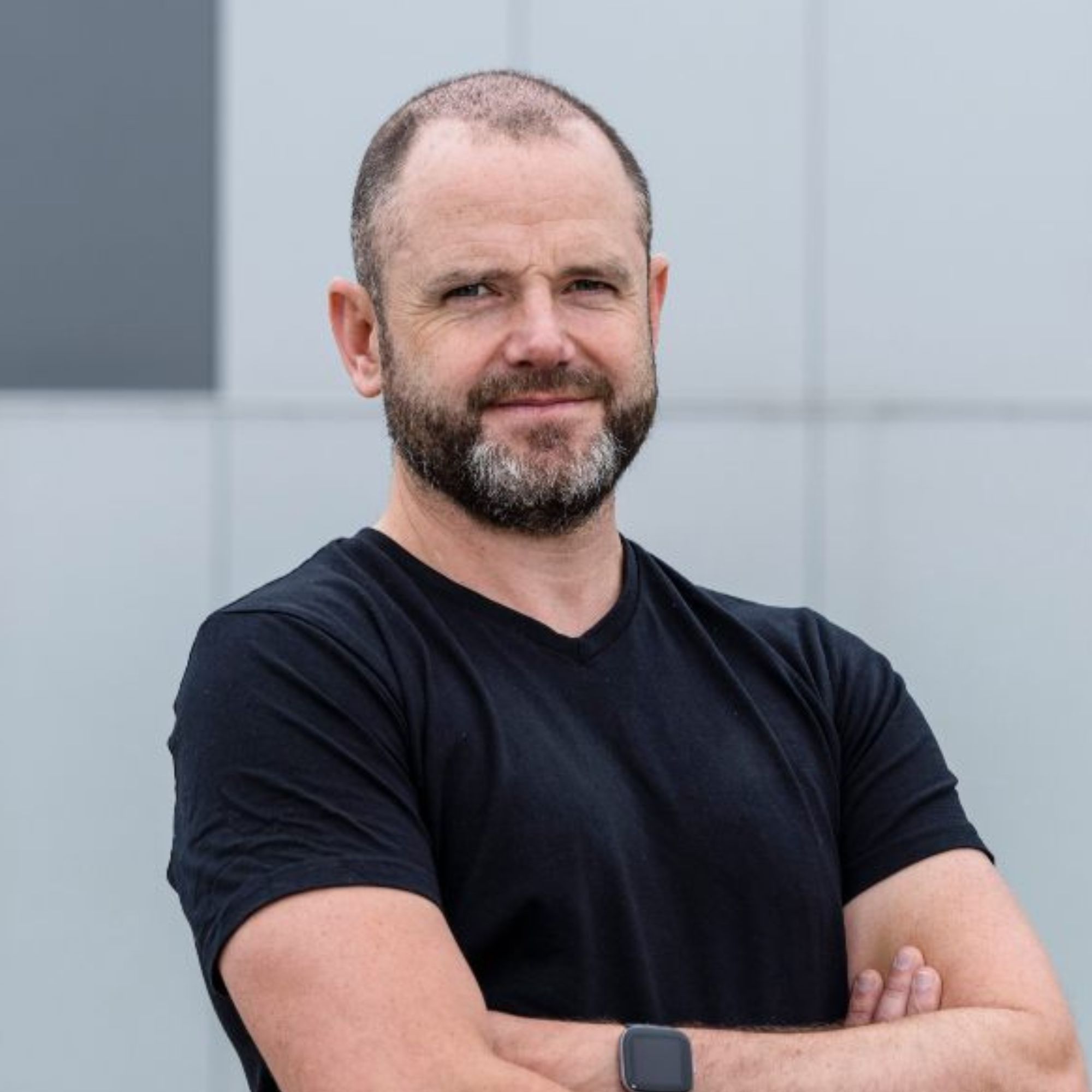Ready to launch your own podcast? Book a strategy call.
Frontlines.io | Where B2B Founders Talk GTM.
Strategic Communications Advisory For Visionary Founders
Conversation
Highlights
Most startup origin stories follow a familiar pattern: founder identifies problem, builds solution, then hunts for customers. But in a recent episode of Category Visionaries, Azumuta founder Batist Leman revealed a different path – one where customer demand preceded and shaped product development, leading to stronger market fit and more sustainable growth.
When Customers Write Your Roadmap
The birth of Azumuta wasn’t sparked by a grand vision or market analysis. Instead, it emerged from a pattern of customer requests that proved impossible to ignore. “Then came a customer asking, can you create a software tool for making these work instructions here?” Batist recalled. “I did that and a while later another manufacturing company came to me and said, hey, we have a problem with our work instructions here. Can you create a software tool for it?”
This repeated demand signal triggered a crucial realization. “So then I thought like, yeah, that’s now the second time they are asking me this. Perhaps I can do this as a service and provide them with this software tool online where we manage the service and improve it.”
The Power of Organic Product Evolution
This market-led approach to product development created an unexpected advantage. Rather than building features based on assumptions, Azumuta’s product evolved in direct response to validated market needs. “We really have a culture of doing things iteratively,” Batist explained. “We also listen very well to our customers. So we really started with Azumuta based on questions that we got from the market.”
This customer-centric development process led to remarkably precise understanding of their ideal customer profile. As Batist detailed, “For us, it’s like our sweet spot is a discrete manufacturing… companies that are building complex products that takes a long time to make. So for example, discrete manufacturing where it takes 60 seconds to do your job, that’s too short for us. If it’s a bit longer, like 1 hour, 2 hours to do your job, and then products with high degree of complexity.”
The Marketing Evolution Challenge
However, Azumuta’s journey wasn’t without its stumbling blocks. The technical background of the founding team created initial challenges in marketing and messaging. “We are quite technical team… we like to talk about features. That’s a classic, it’s not necessarily a mistake, but that’s a classic property of a startup,” Batist acknowledged.
The company’s early attempts to build a marketing function revealed a common startup pitfall. “In the beginning we hired… not the most expensive people. And so that was a mistake. There were junior people, just graduated, didn’t have a lot of experience. And so it was really hard.”
The turning point came with investment in experienced marketing talent. “We had some great hires from HubSpot… those people are coming from HubSpot, a lot of experience in marketing, and that really changed the game completely,” Batist noted. “Since then you can clearly see it in our metrics. Like when did they join Azumuta? From that point on, you really see like a dent in our graphs.”
Evolving the Message
This experienced marketing team helped drive a crucial evolution in messaging, shifting from feature-focused communication to strategic business value. “Now we are shifting our messaging from those features, more like about the bigger picture items,” Batist explained. The new messaging addresses executive-level concerns: “How do you get your quality under control, the quality of your workforce? How can you defend against an aging workforce? How do you manage to capture all the tacit knowledge that’s available in your operators?”
The Reality of Success
Perhaps most revealing is Batist’s candid perspective on the startup journey itself. “Actually, in the moment, I rarely feel like it’s working,” he admitted. “You’re always super busy. You’re doing deals, you’re doing hires, you’re handling all kinds of things… there is a huge amount of work on your plate.”
This constant forward momentum makes it difficult to recognize progress in real-time. “It’s only when you stop and you think like, oh, two years back, and now we grew times ten, for example, and then you realize, okay, it is going fast, but we just don’t realize that you are so focused on doing the work.”
The Path Forward
Looking ahead, Azumuta’s vision remains focused on their core mission of making manufacturing fundamentally more productive. As Batist explained, “Even if there are lots of robots, there will always be humans doing the oversight, helping the robots. And so they also need to be supported. They can’t be forgotten, end up in misery. If your knowledge is in the people’s heads and they leave your company, then all the knowledge gets lost and you have to start over.”
This journey offers valuable lessons for founders: the power of letting market demand guide product development, the importance of investing in experienced marketing talent, and the reality that success often feels like a constant state of necessary dissatisfaction. It’s a reminder that sometimes the best strategy is simply to listen carefully to what the market is already telling you.
Actionable
Takeaways
Leverage Personal Passions into Business Opportunities:
Batist's journey from a childhood interest in programming and building things to the foundation of Azumuta underscores the power of aligning personal passions with business ventures. For founders, identifying and leveraging your own passions can lead to innovative solutions and fulfilling work.
Recognize and Act on Market Demands:
The inception of Azumuta was a direct response to a recurring demand for work instruction software in the manufacturing industry. This highlights the importance of listening to market needs and being agile enough to pivot or adapt your business model to meet those needs effectively.
Adopt an Iterative Approach to Business Growth:
Azumuta's gradual evolution from a consultancy to a product-based company illustrates the benefits of an iterative approach to business development. Embracing gradual changes and learning from each step can lead to more sustainable growth.
Invest in Quality Talent for Key Growth Areas:
The significant impact of hiring experienced marketing professionals on Azumuta’s growth trajectory emphasizes the importance of investing in quality talent, especially in areas critical to your company’s expansion. Founders should not underestimate the value of experienced hires in accelerating company growth.
Cultivate a Culture of Customer Centricity:
Azumuta's success in inbound marketing and product development is deeply rooted in a culture of listening to and engaging with customers. Founders should prioritize building a customer-centric culture, where feedback is actively sought and used to inform product development and marketing strategies.































